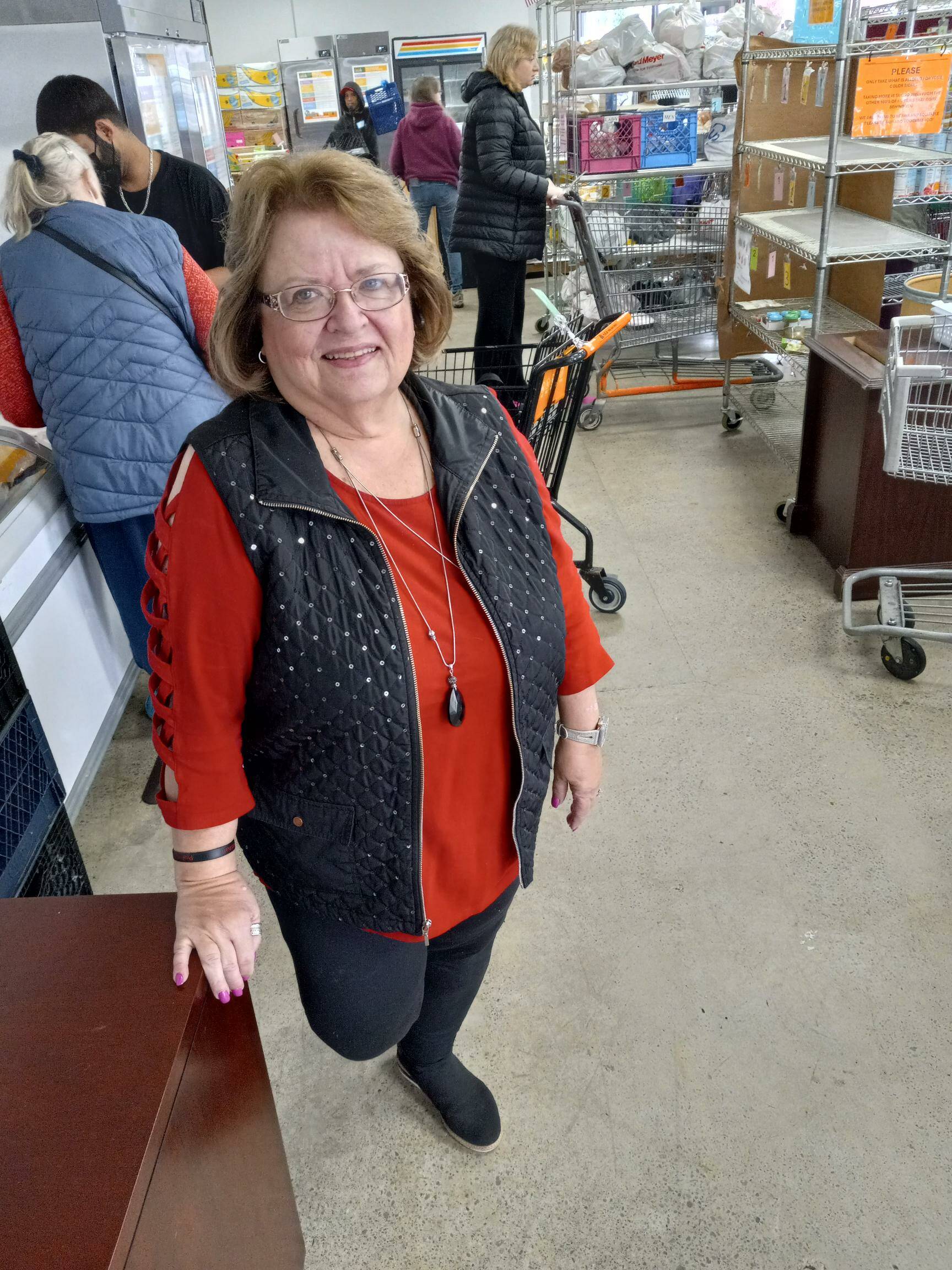It isn’t hyperbole to say that Debbie Christian, executive director of the Auburn Food Bank, along with the staff and volunteers at the food bank, are among the most thankful people one could ever find.
They are thankful for the food bank’s new digs at 2804 Auburn Way N., made possible by an incredibly generous yet anonymous benefactor who rode in out of the blue at Christmas 2023 with $800,000 to cover construction costs incurred by the food bank’s move from its home of many years in the Burndale Housing complex.
The new place offers much more space to store food, and freedom to move about. It also offers an overnight shelter for Auburn’s unhoused.
“Things here are doing well,” Christian said Tuesday morning. “Food has been coming in okay. Our numbers are up considerably over last year, like about 500 families in our first quarter.”
Yet, the agency’s annual school food drive was down about 30,000 pounds compared to 2024, and indeed several years before that. Christian called that an indicator of what’s happening in a community’s economy. And with the national economy so volatile, and prices so high, “down” was expected.
“We went in knowing it would be less, and it was. We are clearly seeing less come in, but we are still serving as many people, and more than we have before,” Christian said. “It’s one of those shell games you have to play all the time: how can you stretch what you have far enough? What can you move around, and where are the people coming from?”
The donation stream is down, too, especially in terms of old staples like peanut butter, cereals and canned tuna. When those diminish, Christian said, one really notices that with the cost of those items going through the roof, those people who could give a lot not so long ago can no longer afford to do it.
“Everyone comes in already with anxiety on their back,” Christian said. “They don’t want to be asking strangers for food, and then, by showing up, they’re sort of admitting, ‘I don’t have enough to feed my family,’ which is another thing they have to live with.
“And when they go to the grocery store, they don’t have enough money, because food stamps have been cut some, though not too bad, yet. So, some are getting $6 while others are getting $45. Even I can go to a grocery store, spend $105 and walk away with three little bags and feel I don’t have anything. It’s just this constant circle, and everybody is hurting.”
Auburn, Christian added, has always been “really super helpful. I can put out a post on Facebook or arrange a sort of general meeting, and in a few weeks it just all comes in.”
The Auburn Food Bank doesn’t receive direct federal funding. It arrives through a pipeline of either Feeding America, which goes to Food Lifeline and is divided up by regions, or money that comes from the USDA (United States Department of Agriculture), though the federal government has cut $18 million from its commodity funds used to buy cheese and the like.
Up to Jan. 1, Christian said, there were pots of money helping the Auburn Food Bank and other such agencies, and even extra pots.
“In those extras was a pot we all loved because we were able to purchase food through our local farmers and put it on the table here. Granted, it was a little bit more expensive, but it was also fresh. That money, which was federal, has completely been shut off now, so we won’t be seeing that in the future,” Christian said.
Because this year’s USDA budget is set, there shouldn’t be any more tough news this year. But when 2026 arrives, expect changes, she said
Given all the present uncertainty, Christian said, food banks now rely on day-to-day, week-to-week information.
The Auburn Food Bank, Christian said, is keeping its eyes on now.
“I need to worry about today, and tomorrow, and next week,” Christian said. “People are constantly worried whether there will be enough. We get a lot of people asking ‘Are the federal mandates affecting you?’ and we just keep saying we haven’t seen the effects yet, so, not yet, not yet.”


